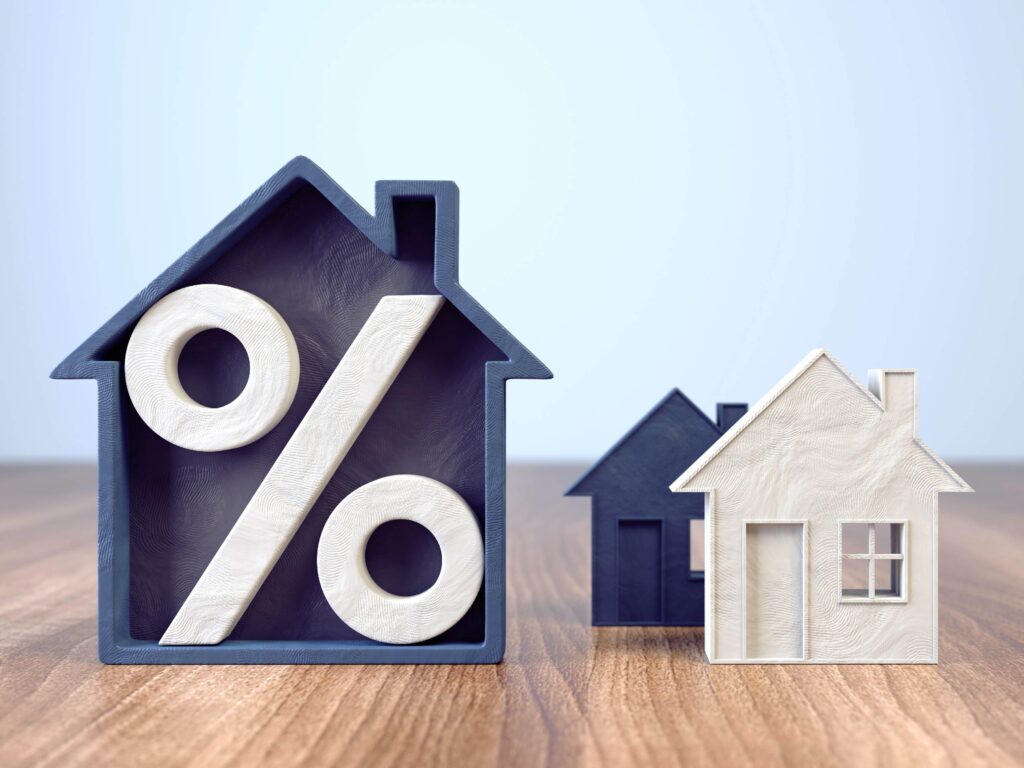Your mortgage will almost certainly be the biggest financial borrowing you undertake in your lifetime – whether you’re a landlord, or you’re buying a home to live in.
And while you’ll be well aware how much money you’re borrowing to fund the purchase of your property, the interest added on top can sometimes be confusing.
Here, we’re answering 10 of the most common questions on mortgage interest asked on Google…
1. What is an interest-only mortgage?
An interest-only mortgage means you only pay off the interest on your mortgage and not the loan itself.
Instead, the full amount is paid back at the end of the term or when the property is sold.
2. How does an interest-only mortgage work?
As you only pay off the interest on your mortgage, interest-only mortgages can work out cheaper in terms of monthly payments.
However, you aren’t clearing any of the mortgage amount itself and you’ll almost certainly end up paying more interest than you would if you took out a standard capital repayment mortgage.
3. Can I extend my interest-only mortgage term?
It is possible to extend your interest-only mortgage term, but only if your lender agrees.
Many people on interest-only mortgages find they have no way of paying off their mortgage lump sum at the end of their term beyond selling their home.
Sometimes, lenders will allow you to extend your mortgage term and move some or all of the loan on to a repayment mortgage, so you can start to pay it down.
However, this can mean higher monthly payments, so you should always seek independent financial advice.
4. Can I get an interest-only mortgage?
In the 1990s, it’s estimated that around one third of all mortgages in the UK were interest-only.
Now, however, there are far fewer interest-only mortgages available, with the financial crisis in 2008 putting paid to many of these deals.
Interest-only mortgages are still available through some lenders, but most will insist applicants come through a broker and affordability tests are far more stringent, while many lenders will only provide interest-only deals to high net worth individuals.
The lender will also want to know how you plan to pay off the lump sum at the end of your term, whether that’s through savings, investments or a pension.
Interest-only mortgages are more readily available for landlords, as these mortgages are more standard for those buying property as an investment which generates rental income.
5. What is the mortgage interest rate?
The interest rate on your mortgage is the annual cost of borrowing from your lender and the percentage of your overall mortgage that you pay in interest.
Your mortgage interest rate will vary depending on your lender and your mortgage product.
Mortgage interest rates generally fall along with falls in the Bank of England base rate.
If the base rate rises, mortgage interest rates generally rise, too.
How much the Bank’s base rate affects your own mortgage interest rate, though, will depend which type of mortgage you have:
- Fixed rate: You won’t notice any interest rate change until your fixed rate term ended
- Standard Variable Rate: If your mortgage is on your lender’s Standard Variable Rate (SVR), it’s likely your lender will add on or remove at least a portion of any base rate rise or fall from their SVR
- Tracker mortgages: These mortgage interest rates sit just above the Bank’s base rate and follow it when it rises or falls. So, if you have a +1% tracker and the base rate is 1%, you’ll pay 2% in mortgage interest. If the base rate rises by 0.25%, your mortgage rate will rise by the same amount
6. How does mortgage interest work?
On a repayment mortgage, you’ll pay back a portion of your loan each month with the percentage interest on top.
On an interest-only mortgage, you pay back just the interest amount each month.
7. How to calculate mortgage interest
To calculate the amount of mortgage interest you pay each month, do the following:
- Take the current outstanding amount owed on your mortgage and multiply that number by your current interest rate as a decimal. For instance 2% would be 0.02
- Divide that number by 12 and that will give you the amount due in interest on your next payment
8 Can landlords claim tax relief on mortgage interest in the UK?
Landlords can no longer claim tax relief on mortgage interest payments, following changes in legislation that were phased in until April 2020.
Now, if you’re a landlord, you can claim a reduction of up to 20% on your annual tax bill in place of the previous mortgage interest deduction.
9 How much interest do I pay on a mortgage?
Calculating the mortgage interest you’d pay over the term of your loan, which is more than likely to be around 25 years, is almost impossible.
Because you’ll be paying down the loan if you have a repayment mortgage and you’ll be switching to different mortgage rates every few years, the amount of interest you pay will depend on how quickly you pay the loan down and what future rates you move to.
However, your lender will give you a breakdown of your interest based on you staying on your initial rate of interest and not over paying at any point during your mortgage term.
10. How do I get the best mortgage interest rate?
To gain access to the best mortgage rates available, you should:
- Have a good credit history and strong credit score
- Save as large a deposit as you can – the larger your deposit, the lower your mortgage and the more attractive your interest rate
- Go through a broker, who will have access to a wide range of lenders and rates
Further reading…
Now you’re up to speed on everything to do with mortgage interest, take a look how the government’s recent changes to stamp duty have affected the London housing market.
We’ve also explained everything you need to know about buy-to-let mortgages, if you’re thinking of investing in property.








